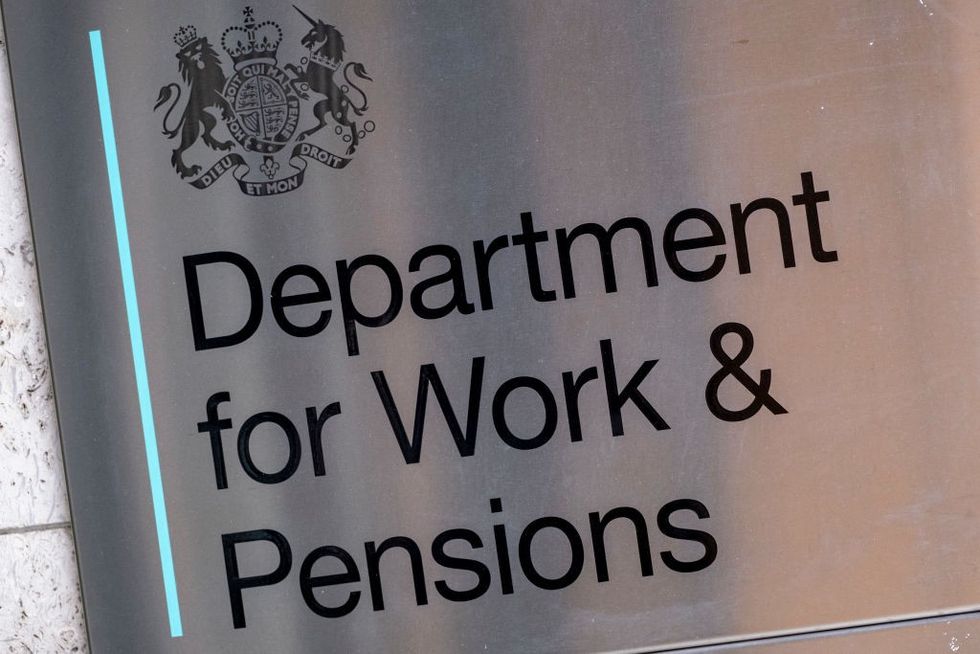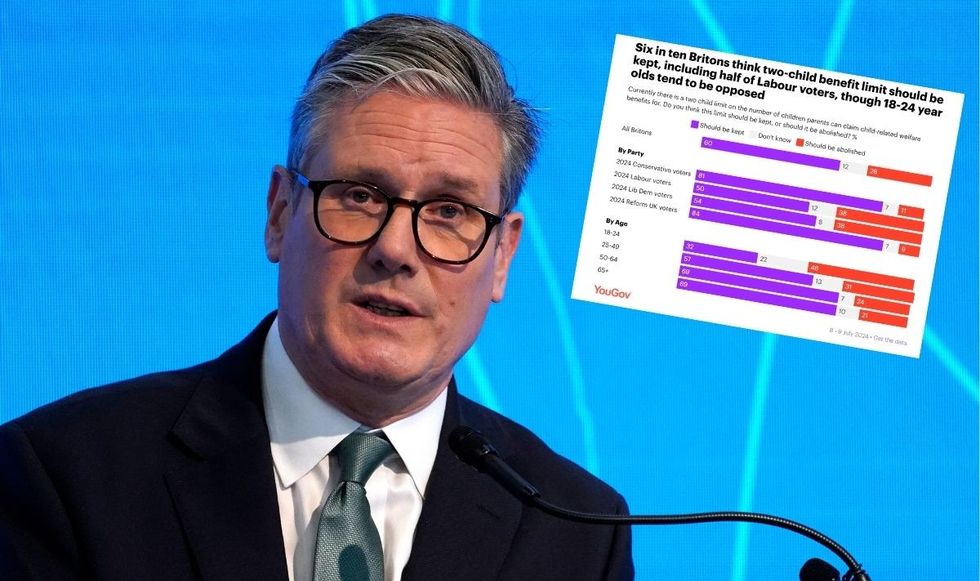Think tanks are calling for the two-child benefit cap to be scrapped
GETTY
Under the benefit cap, the amount Britons can get from payments such as Universal Credit is restricted
Don't Miss
Most Read
Trending on GB News
Campaigners are urging the new Labour Government to scrap the DWP's two-child "benefit cap" on means-tested payments, such as Universal Credit, due to thousands of families being at risk of falling into poverty.
Onward is calling for the policy, which was introduced under the Conservative Party in 2017, to come to an end and is pushing for changes to improve families' finances.
The centre-right think tank joins voices across the political spectrum to axe the policy and has put forward proposed changes to the social security system.
Among the recommendations include ending the "41-week" rule on Statutory Maternity Pay to ensure women who are trying to conceive or are pregnant are not stopped from finding new jobs.
According to the group, new mothers who have worked for any employer for 26 weeks out of the 66 weeks before their expected birth week should be eligible for Statutory Maternity Pay.
On top of this, Onward is calling for the length of time new mothers get the higher rate of pay to be doubled, from six to 12 weeks. The group believes mothers should claim 80 per cent off their average weekly pay, with payments capped at £577.
Do you have a money story you’d like to share? Get in touch by emailing money@gbnews.uk.

The DWP policy has received criticism from both sides of the aisle
GETTY
In addition, the organisation has put forward proposals for changes to the tax system in order to relieve the financial pressure placed on households.
Specifically, Onward is suggesting a tapered child tax allowance which would raise the personal allowance for parents by £5,000 over a five-year period.
Based on the think tank's analysis, some 12.6 million working parents will benefit from this policy with the average two-child family saving £2,000.
In order to fund this proposal, Onward has recommended freezing the personal tax allowance for other taxpayers in the UK for the next half a decade.
Under the benefit cap, families do not receive Universal Credit or tax credits for any third or subsequent children born after April 2017. It is estimated that the restrictions impact an increasing number of families, primarily working parents. As of April 2024, the cap meant that around 450,000 families were affected.
However, analysis suggests 670,000 children could be plunged into poverty in the years to come if the DWP's cap remains in place.
Phoebe Arslanagić-Little, the head of New Deal for Parents at Onward, said: "Many people delay having children or are not able to have as many as they wish because they feel priced out of parenthood.
"Britain needs a new deal for parents. These reforms will give new mums and dads more certainty and financial stability with better parental employment rights sends a clear signal to parents that we value them and will allow more people to have the families they want."
LATEST DEVELOPMENTS:
 Six in ten Britons think the two-child benefit limit should be keptGetty/ YouGov
Six in ten Britons think the two-child benefit limit should be keptGetty/ YouGovJustine Roberts, the founder and CEO of Mumsnet added: "Whether or not to have children is a deeply personal decision, but it’s one that’s often influenced by financial factors.
"We know from the millions of conversations on Mumsnet that high childcare costs, the housing crisis, and the effect of the Motherhood Penalty on women’s careers all pose barriers to parenthood in the UK."
A Government spokesperson said: "No child should be in poverty – and we are committed to ensuring that children across the country have the best start in life.
"That’s why our new ministerial taskforce will begin the urgent work of developing an ambitious child poverty strategy, looking at all available levers across government to help tackle the crisis."








